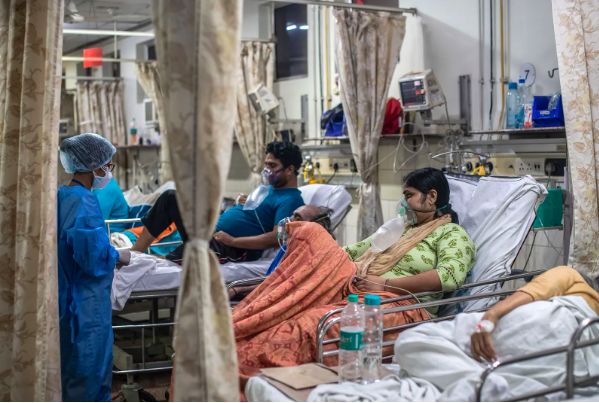Dr. Thompson spoke about the importance of community engagement, and the need to empower each other’s voices. And, as the narrative that the pandemic is over drones on and community engagement dwindles, I am reminded of the times during the height of the pandemic in which people did come together as a community.
Emory highlighted collective responsibility as an important component of ensuring students’ safety on campus. That individuals, whether on campus “to live, work or visit,” should follow COVID-19 guidelines to support the community. Those who were off-campus during this peak time were still a part of this campaign, and I vividly remember being sent a sweater and a sticker (now on my laptop) with the message: take care of each other. Albeit not the end-all answer in COVID relief, students from multiple organizations came together to sew masks, fundraise supplies, and write letters of encouragement to those going through a rough time.
For you. For Us. For Emory.
https://studenthealth.emory.edu/other/COVID/stay-healthy.html
In my community, a block away from one of Emory’s hospitals in Atlanta, my Desi-American neighborhood came alive at 7 pm every day in a communal outburst of clapping for the essential workers putting their lives on the line. While initially a demonstration of appreciation for frontline workers, those five minutes, hanging outside our windows, were an important reminder to us of our co-dependent existence in this world–that albeit long hours of isolation, we were not alone.

But, it was still hard for us with family members back in India and other South-Asian countries. While neighbors were having summer get-togethers and had vaccination appointments lined up, doctors in India were struggling to acquire treatment drugs and open ICU beds. It evoked a jarring feeling of helplessness from a place of immense privilege. So, despite the narrative of WhatsApp COVID cures, Desi communities across the United States came together to raise money for supplies, such as oxygen concentrators, to send to physicians on the ground.

Moreover, regarding support during the United States’ COVID surges, Desi communities took care of others–religious events were done virtually or socially distanced; neighbors made food for the elderly; family and friends met via zoom–knowing that it would ensure a safe community. In Atlanta, we made food satchels for the homeless, who may not have felt safe at shelters filled with individuals sick from the virus.
However, I know that in all communities, there were individuals who may not have felt at ease with the vaccine/treatment measures because they believed in alternate sources for a cure. How best should one go about navigating this conversation? And, why is it that this hesitation came about so headstrong during this pandemic as compared to the hesitancy surrounding mandatory vaccines for school-aged children?

Hi Sriya,
I really enjoyed your post about the Desi community during COVID-19. While there have been a lot of frustrating and disheartening aspects to this pandemic, seeing the resiliency and unification of people is incredibly inspiring and heartwarming. I was especially touched by your comment about how Desi communities cheered on essential health workers, made food for the elderly, hosted virtual events, and made food for unhoused populations. In a time where many people responded with misinformation or hate, what do you think inspires people to respond in the ways you described?
Great post Sriya, and like Shannon, I appreciated your focus on how folks came together to support and help one another. I am thankful for the ways that the COVID pandemic has show us that mutual aid (sharing money, food, and other resources with those who need it) work and it has forced the creation of mutual aid networks. Similarly, I am thankful that the COVID pandemic brought to the forefront (for more people) many of the issues that disability activists have been talking about for decades.
Hi Sriya! Your post really resonated with me and had me thinking about early in the pandemic when everything was so uncertain. I was a Starbucks barista at the time, and I remember when we’d give free hot and iced coffees to healthcare workers who were working on the frontline. It felt silly to me whenever I’d be considered an essential worker because I, obviously, wasn’t dealing with patients. However, all the medical personnel who came and got coffee were so appreciative of us, and it truly made me happy. Even though large community efforts, such as cheering on workers or packing food and essentials, I think the little things, like serving a cup of coffee, helped with the stamina of fighting the pandemic.